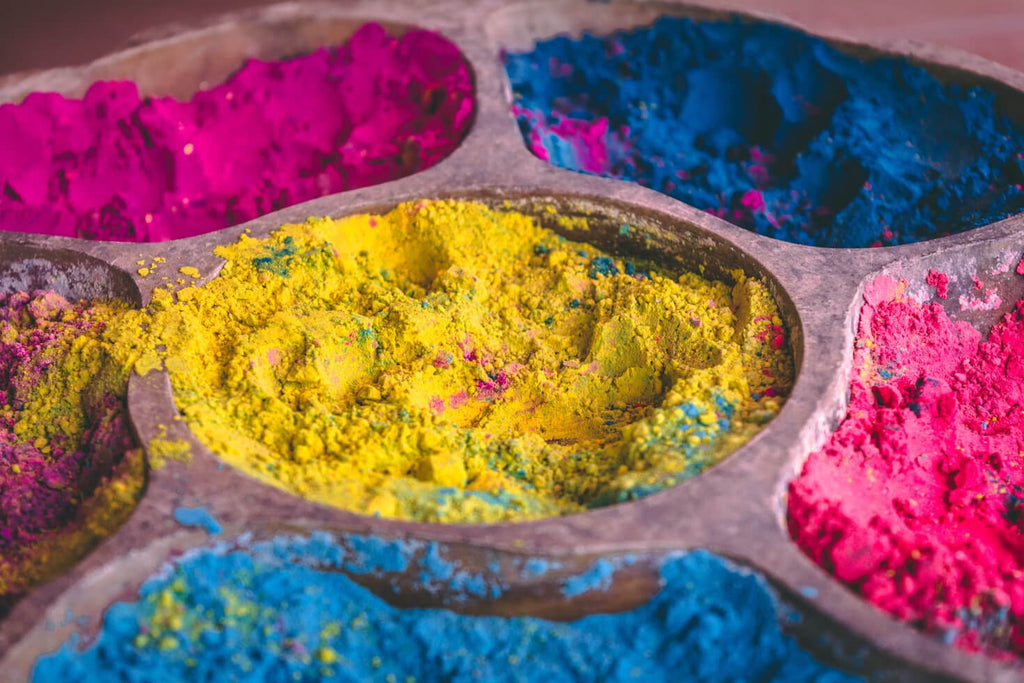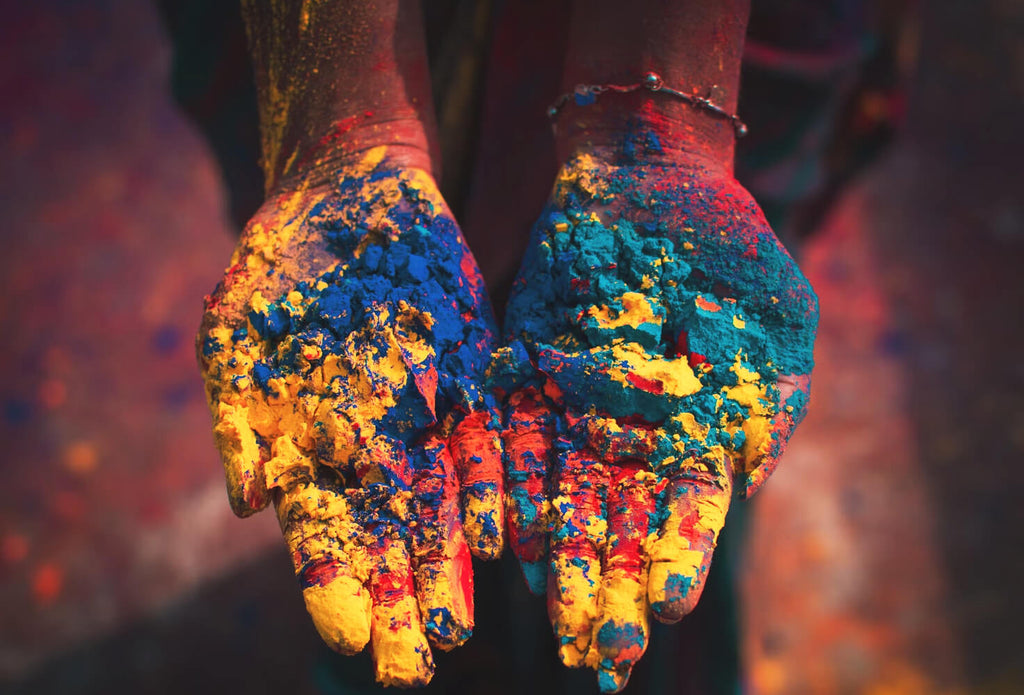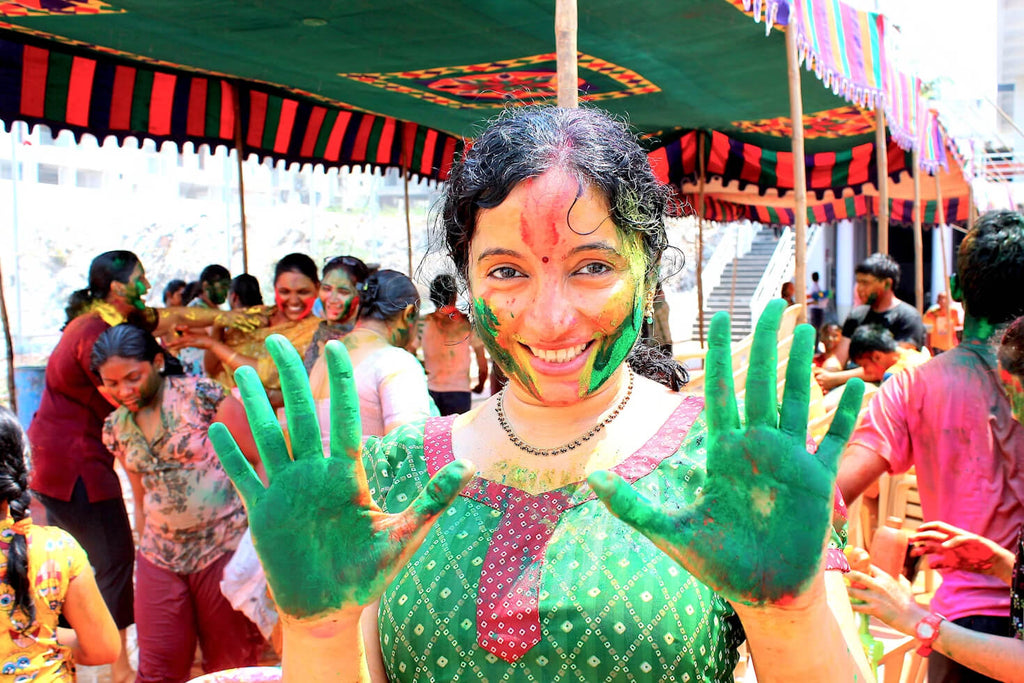A Guide To Safe And Eco-Friendly Holi Celebrations
As the joyous festival of Holi approaches, it's essential to celebrate not only with vibrant colors but also with a commitment to safety and environmental responsibility. In this comprehensive guide, we'll delve deeper into the significance of Holi, discuss the potential environmental impact of traditional celebrations, and provide actionable tips for a safe and eco-friendly Holi that resonates with both tradition and sustainability.
The Essence of Holi: Colours, Culture, and Connection
Holi, also known as the Festival of Colours, holds a special place in the hearts of millions around the world. Rooted in Hindu mythology, it symbolizes the triumph of good over evil and the arrival of spring. The festival transcends religious and cultural boundaries, uniting people in a celebration of joy, love, and togetherness.

The Environmental Impact of Traditional Holi Celebrations
While the exuberant use of colors during Holi is a cherished tradition, the commercialization of synthetic and chemical-laden powders has raised concerns about its impact on the environment and human health. Many traditional Holi colors contain harmful substances like lead, mercury, and asbestos, posing risks to both people and ecosystems.
The popularity of synthetic colors has led to polluted water bodies, soil contamination, and adverse health effects. As we explore the joyous traditions of Holi, it becomes crucial to reflect on how we can preserve the essence of the festival while minimizing our ecological footprint.
- Choosing Eco-Friendly Colours: A Palette of Nature's Hues
One of the most impactful ways to ensure an eco-friendly Holi is by opting for natural and organic colors. These colors, derived from plant extracts, flowers, and herbs, not only add a vibrant touch to the festivities but also minimize the environmental impact.
 Nature offers a diverse range of hues that can be transformed into safe and vibrant colours. Turmeric provides a vibrant yellow, while beetroot offers a deep red. Explore the possibilities of creating your colour palette at home, tapping into the beauty and variety that nature provides.
Nature offers a diverse range of hues that can be transformed into safe and vibrant colours. Turmeric provides a vibrant yellow, while beetroot offers a deep red. Explore the possibilities of creating your colour palette at home, tapping into the beauty and variety that nature provides.
- DIY Colour Making: Crafting Personalized Eco-Friendly Hues
Embrace the spirit of Holi by making your own colors at home. Encourage friends and family to join in the creative process, using ingredients like henna, gram flour, and natural food dyes. This DIY approach not only adds a personal touch to the celebrations but also ensures that the colors used are safe and environmentally friendly.

Gather your loved ones for a pre-Holi crafting session, experimenting with different natural ingredients to create a spectrum of colours. Share ideas and techniques, making the process a delightful prelude to the festive day.
- Water Conservation: Making Every Drop Count
Traditional Holi celebrations often involve water balloons, water guns, and enthusiastic water play. However, water scarcity is a global concern, and excessive water usage during Holi can exacerbate the problem.

Consider alternative ways to celebrate, such as dry Holi or using limited water responsibly. Set up water stations strategically, ensuring that water is not wasted. Encourage participants to use water mindfully, understanding the importance of conserving this precious resource.
- Protecting Your Skin and Eyes: Preparing for Safe Celebrations
Many commercial colours contain chemicals that can irritate the skin and eyes. Prioritize your health and well-being by applying a generous layer of coconut oil or moisturizer on your skin before playing Holi. Wear protective eyewear to shield your eyes from colour particles, reducing the risk of irritation or infections.

Consider organizing a pre-Holi skincare and safety workshop, providing participants with tips on skincare routines and the importance of protective measures. Share information about safe practices to ensure that everyone can enjoy the festivities without compromising their health.
- Eco-Friendly Holi Parties: Setting the Tone for Sustainability
Host an eco-friendly Holi gathering by incorporating sustainable practices into your celebrations. Use biodegradable plates and utensils, opt for organic snacks and drinks, and create a festive atmosphere with eco-friendly decorations.

Consider organizing a "green" Holi party, where sustainability is at the forefront. Showcase eco-friendly products and decorations, educating guests about the environmental impact of their choices. Make the event a platform for raising awareness and fostering a sense of responsibility.
- Post-Holi Cleanup: Respecting Nature's Canvas
After the festivities, responsibly clean up the colourful remnants. Avoid washing excess colour into water bodies, as it can harm aquatic life and ecosystems. Instead, use biodegradable cleaning agents or natural ingredients like lemon and gram flour to gently remove colour from your skin and clothes.
Organize a community cleanup drive, involving participants in the post-Holi cleanup process. Emphasize the importance of leaving outdoor spaces in the same pristine condition in which they were found. Make it a collective effort to respect and preserve the environment.
- Spreading Awareness: Cultivating a Culture of Responsibility
Use the joyous occasion of Holi to educate others about the importance of safe and eco-friendly celebrations. Share information about natural colour alternatives, water conservation tips, and the environmental impact of traditional Holi practices.
Collaborate with local schools, community centres, and organizations to organize workshops on eco-friendly Holi practices. Create informative pamphlets, digital content, or social media campaigns to reach a wider audience. Cultivate a culture of responsibility and mindfulness within your community.
- Sustainable Fashion for Holi: Ethical Choices for a Colourful Wardrobe
Extend the eco-friendly ethos to your Holi wardrobe by choosing sustainable and ethically produced clothing. Opt for outfits made from organic cotton, hemp, or other eco-friendly materials. Consider investing in pieces that can be worn beyond Holi, promoting a sustainable approach to fashion.

Organize a sustainable fashion showcase or clothing swap event, encouraging participants to explore eco-friendly fashion choices. Share information about ethical brands and sustainable fashion practices, making Holi celebrations a platform for conscious consumerism.
- The Role of Plant-Based Dyes: A Natural Approach to Color
Explore the world of plant-based dyes, an ancient technique that aligns with the principles of eco-friendly celebrations. These dyes, derived from plants and flowers, offer a sustainable and biodegradable alternative to synthetic colours.
Organize a workshop on plant-based dyeing techniques, showcasing the beauty and versatility of natural dyes. Participants can experiment with creating their colors, fostering a deeper connection to the natural world and promoting sustainable practices.
- Holi and Indigenous Knowledge: Preserving Traditional Wisdom
Celebrate Holi as an opportunity to recognize and preserve indigenous knowledge related to colour-making techniques. Many communities have traditional practices of extracting colours from locally available plants and materials, passed down through generations.
Engage with local artisans and communities to learn about these traditional methods. Organize events that showcase the richness of indigenous knowledge, creating a platform for cultural exchange and appreciation.
 Embracing a Harmonious Holi
Embracing a Harmonious Holi
A safe and eco-friendly Holi is not only a reflection of our commitment to the environment but also an affirmation of our respect for traditions. By making conscious choices, we can preserve the essence of this vibrant festival while minimizing its ecological footprint.
As we celebrate Holi with colours that are gentle on the Earth and our health, let us create a harmonious blend of tradition, joy, and sustainability. May the colors of Holi illuminate our lives while leaving a positive impact on the planet we call home.
Extend this message beyond personal celebrations, encouraging others to adopt eco-friendly practices. By collectively embracing a harmonious Holi, we can contribute to a brighter, sustainable future for generations to come.
FAQs
- Why should I choose natural colours for Holi celebrations?
Opting for natural colours is an eco-friendly choice that reduces environmental impact and minimizes health risks associated with synthetic and chemical-laden colours. Natural colours are derived from plant extracts, flowers, and herbs, ensuring a safer and more sustainable celebration.
- How can I make natural colours at home for Holi?
Creating natural colours at home is a fun and eco-friendly activity. Use ingredients like turmeric, beetroot, henna, and natural food dyes. Experiment with combinations to achieve a vibrant colour palette while ensuring safety and sustainability.
- What are some DIY safety measures for skin and eyes during Holi?
Prioritize your well-being by applying coconut oil or moisturizer on your skin before playing Holi. Wear protective eyewear to shield your eyes from colour particles, reducing the risk of irritation or infections. These simple measures ensure a safe and enjoyable celebration.
- How can I conserve water during Holi?
Water scarcity is a global concern, and excessive water usage during Holi can contribute to the problem. Consider celebrating with limited water, opting for dry Holi, or setting up water stations strategically. Encourage participants to use water mindfully to make every drop count.
- Are there alternatives to water balloons and water guns for Holi?
Yes, there are eco-friendly alternatives to water balloons and guns. Consider celebrating with dry colours, organic confetti, or incorporating water-saving games and activities that minimize water usage while maintaining the festive spirit.
- How can I ensure the colours used are biodegradable?
To ensure biodegradability, choose natural colours or colours labelled as biodegradable. Check the product composition and avoid colours with harmful chemicals. Making DIY colours at home using natural ingredients guarantees a biodegradable and environmentally friendly celebration.
- What is the significance of eco-friendly Holi parties?
Eco-friendly Holi parties prioritize sustainability, using biodegradable plates and utensils, organic snacks, and drinks. By incorporating eco-friendly decorations and reducing electronic waste, these parties contribute to a positive environmental impact and set a trend for responsible celebrations.
- How can I responsibly clean up after Holi celebrations?
Avoid washing excess colour into water bodies, as it can harm aquatic life. Use biodegradable cleaning agents or natural ingredients like lemon and gram flour to gently remove colour from your skin and clothes. Conduct a post-Holi cleanup, involving participants in the responsible disposal of colourful remnants.
- How can I spread awareness about safe and eco-friendly Holi celebrations?
Use the festive occasion to educate others about the importance of safe and eco-friendly celebrations. Share information about natural color alternatives, water conservation tips, and the environmental impact of traditional Holi practices. Cultivate a culture of responsibility and mindfulness within your community.
- Can I make sustainable fashion choices for Holi?
Yes, you can extend the eco-friendly ethos to your Holi wardrobe by choosing sustainable and ethically produced clothing. Opt for outfits made from organic cotton, hemp, or other eco-friendly materials. Consider investing in pieces that promote a sustainable approach to fashion.
- How can I organize a green Holi party?
Organizing a green Holi party involves using biodegradable plates and utensils, opting for organic snacks and drinks, and incorporating eco-friendly decorations. Consider showcasing eco-friendly products and raising awareness about sustainable practices during the event.
- How does plant-based dyeing contribute to eco-friendly celebrations?


